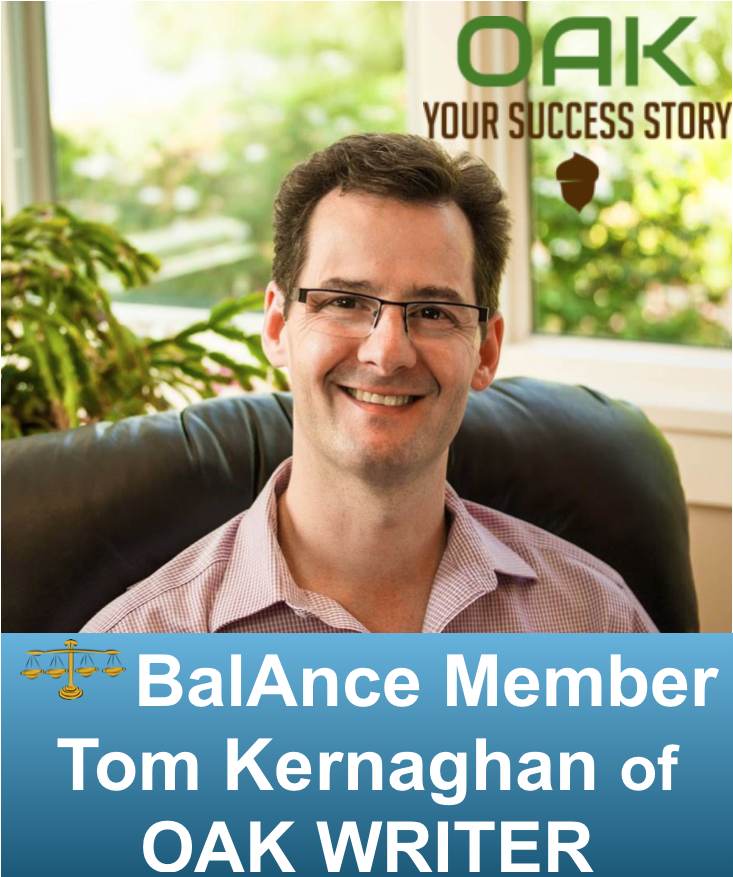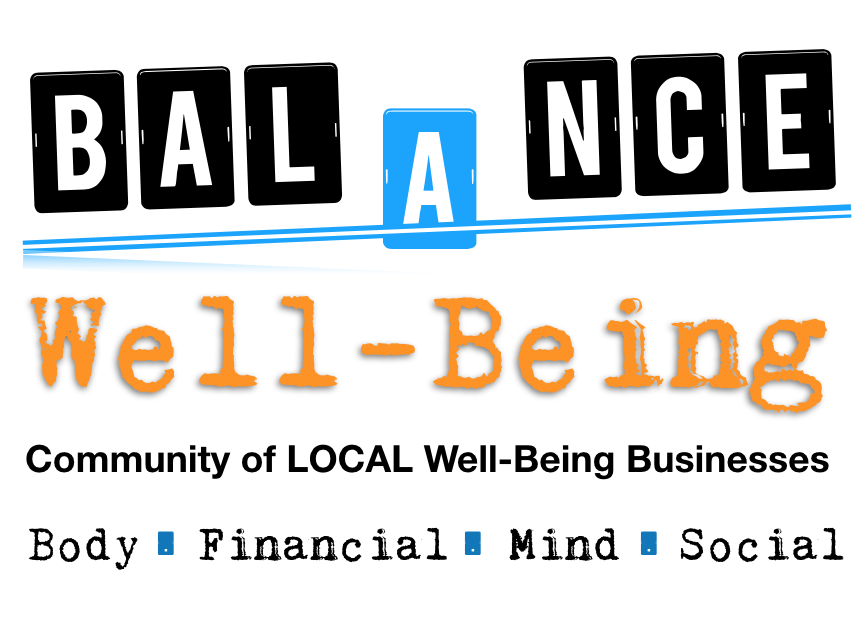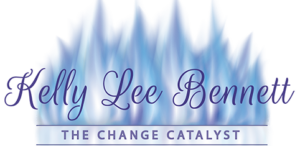 Kelly Lee Bennett is the “Change Catalyst,” which is a fitting name for a woman who has seen plenty of challenges throughout all facets of her life, and has learned how to master them. An executive leadership and life coach with over 20 years of experience, and more certifications than can be listed here, Kelly has a multitude of tools to help you clear your path and ignite your passion to discover and grow. A former executive and therapist, Kelly understands both the professional and personal obstacles that can keep us from moving forward and achieving our highest potential.
Kelly Lee Bennett is the “Change Catalyst,” which is a fitting name for a woman who has seen plenty of challenges throughout all facets of her life, and has learned how to master them. An executive leadership and life coach with over 20 years of experience, and more certifications than can be listed here, Kelly has a multitude of tools to help you clear your path and ignite your passion to discover and grow. A former executive and therapist, Kelly understands both the professional and personal obstacles that can keep us from moving forward and achieving our highest potential.
Kelly is on the verge of achieving her MCC and ICF designations, the highest in coaching. She offers workshops, retreats, seminars, one-one-one sessions, and a vast array of modalities to suit each client. Such diversity comes as no surprise as Kelly has a rich and varied history of experiences, has travelled to 121 countries and lived in 5, and she continues to seek adventure and seize every opportunity to learn more.
We recently had a wonderful, informative, and igniting conversation.
You were once a VP with a busy corporate career. What ignited you go out on your own and become a coach? And how did you start?
It was a great experience to have when I was young. I was working in oil and gas — the old boys’ club, as you might say — and I was sick of how hard it was. I felt it was sucking the life out of me and realized it just wasn’t for me. Then, as I evolved in my own personal development, I found I enjoyed mentoring and coaching the other leaders that reported to me. So, I took a year off and got some certifications and began a new direction.
I started my own full HR outsource, which included career coaching, leadership, transition, and all HR services — as well as executive search. At that time I moved to Dubai, where I lived for seven years. My business was absolutely international, and my website was half in Arabic and half in English, and I developed a very large international network. I enjoyed every part of that, but the aspect I was really loving was coaching and developmental work, whether with CEOs or emerging leaders.
It’s really about developing the full human being, because of course the leadership role affects the personal life. You can never have coaching, therapy, counselling, or mentoring, in any piece of your life and not have it affect the rest of your life. So that’s when, and why, I started focusing on coaching. Here I am, continuing to evolve, shift, and move. And every year I continue my education. I just love learning; it’s important to me, and I think it serves my clients well.
Let’s talk about the many countries you’ve lived in and travelled through. Was there something in you from a young age that propelled you around the globe? Most people play it safe, but you do the opposite.
Absolutely, I do the opposite. I’ve just always been so curious about human behaviour. It’s why I became a therapist, and why I love coaching so much. And when you explore other cultures, it’s all new and exciting. Yes, it can also be dangerous. I’ve been to Afghanistan. I’ve been to Yemen. I’ve been to some very scary places and in life-threatening situations. But my curiosity keeps me going, and what I love the most is the people and the range of experiences. I’ve stayed in seven-star hotels, but I also love adventure and have hiked in some amazing places on this planet. I still travel at least one month a year. It’s a challenge to yourself. So much growth comes out of travelling. I believe that everyone should get out of their postal code or zip code; it just opens you up.
I love your strong brand language, and “Change Catalyst” fits nicely with the word “ignite.” Where did this idea come from?
I work with a lot of scientifically minded clients and all kinds of engineers, including pyrotechnical engineers, and oil and gas, and more. They used to call me the “engineer whisperer,” which I thought was hilarious. The word and idea for “ignite” came to me through a testimonial about a retreat I was doing, so it was really a client who gave it to me. And I love it, as it touches on everything that I do: igniting your life, your team, or your organization.
And I love that client connection, which I’ve had with many around the world. But I will say it has been shocking to repatriate. I lived outside of Canada for twelve years, and have only been back four years now, and I find it’s unbelievably painful to sell or even explain coaching to many here. And that’s not just my experience but that of many other coaches as well. In other countries there’s no sell involved; it’s a conversation. Abroad people I meet get excited about all the things I can do, and can’t wait to get me in to meet their teams. Here people seem more close-minded, resistant, or just uncertain. But I’m hoping to change that if I can!
Though you work with a variety of individuals and teams — engineers as well as entrepreneurs, entertainers, and athletes — there is a common thread in that they are high achievers. Typically such people are driven go-getters with lots of spark. So why do they come you? Why have they stalled?
I deal with emerging leaders as well as high-achievers. First, emerging leaders are full of blind spots. And it’s not just them. We are all like this in our evolution to becoming. That’s easier, as there are many openings and opportunities for learning and growth in those early stages.
When I work with someone who’s an established high-achiever, they’re already competing at a high level — for example going to the Olympics or golfing professionally — so I’m not helping them with their sport or game but with their mindset. Or an executive with twenty-five years in the biz, and they’re wondering what’s next. Nothing is really wrong, but then I’ll ask them, “What if this is just the floor for you? What if there’s more?” And who isn’t interested in that? They become curious.
I got to meet Sir Richard Branson about seven years ago in Dubai. And one of my questions for him was similar to what you just asked: What do you think is the biggest block among high-achieving executives? He said it’s that they are this close to giving up, quitting, resigning, retiring, or selling the company … and they are also this close to exponentially killing it. And over the last seven years I have absolutely witnessed that, and see that if we can just re-ignite what they had back in the beginning, where they can go from there is more than they have ever dreamed or done in the past thirty years.
You are a self-described “serial-entrepreneur,” a journey that requires the ability to bounce back and keep going. Tell me about your own resiliency. Was it something innate, or were there events in life that forced you to develop it?
You asked earlier why I left my role as a VP in the corporate world. I was very successful at it, but I wasn’t really who I was. My nickname then was “Viper,” because I was vicious, I was killer. I worked in a man’s world. And though I looked fluffy, you didn’t want to mess with me; I would take you out, and I did.
Then I went through a divorce, got blindsided by an IRS mess, and had a bunch of horrible things happened all at the same time. I actually got to speak about it a few years ago in a movie called Becoming the Keys. I truly had a meltdown. Then I went into therapy, where we discovered I had compounding PTSD. I was raped twice as a girl, and had some other things happen in my life, and then there was all of this on top of it.
That was when I started to make all kinds of changes, evolving into a therapist, then a coach, and building my practice. I think that everything that happens to us in life ends up serving us in some way, as hard and horrible as that is to hear. But it absolutely helps me serve my clients.
What is one of your favourite modalities, or aspects of the work you do with your clients?
One of my newest certifications is in what’s called CIQ, or conversational intelligence, designed by Judith E. Glaser. It’s actually neuroscience, which I’ve studied for years along with psychology. Neuroscience is almost a marketing world in coaching today. Any book on leadership has some mention of it. But I am truly interested in human behaviour and the way the brain, heart, and gut work.
A conversation is actually a chemical reaction. If you believe in energy work, then that’s wonderful. Bruce Lipton and Judith are actually really good friends. There are hard scientific white papers behind all of this — how we work on each other from ten feet away without saying a word. The neuroscience of what goes on in the mirror neurons of the brain when we talk to a client, or when a leader is speaking; a husband and wife, or a child and a teacher. I love all of it — the behavioural, cognitive, and ontological coaching. To teach all of this to a client and help them to use it as a tool is wonderful. Many of my clients, especially those in engineering or finance, are so brilliant and clever, but they’re likely to be in their heads all the time. So understanding how the brain and body are affecting behaviour and performance is huge for them.
I also do equus coaching. Horses are really great at showing what is going on inside of you. A horse will tell you in two seconds who you are, how you’re showing up, and how your energy is affecting them. It’s just amazing to watch the transformation in people when they have that experience. Horses are mirrors to your energy, instantly, and they can help people grow confidence. I was raised with horses, competed in dressage, and have been around them all my life; they are such great teachers. Such great coaches!
You’re holding a retreat in Bali this upcoming April. Tell us about that!
I don’t get to work with many women and would like to, so this will be my third women’s retreat and it’s called Soul Journey. There are fourteen women from all walks of life, ages thirty-five to sixty. I’ve been to Bali seven times and I just love it. We’re in Ubud, the love bubble or spiritual centre of Bali, and we’ll be there at the tail end of the spirit festival, which is amazing. I know a lot of the locals and have many great friends there. The retreat is focused on self-care but also whatever comes up for you, and some organized events you wouldn’t do as a tourist. This is going to be a beautiful experience. I think next year it will be in Tuscany, Italy.
I also have a men’s retreat, called Man Cave Intensive, which I may hold right here in the Okanagan.
What do the words balance and well-being mean for you?
Attaining balance and well-being to me means being in a state of true and pure bliss and joy. The trick is being open to ongoing personal development and self-mastery in regulating our emotions, behaviours, and environments. Every one of us is in a constant state of change and evolution. That’s what keeps life exciting!
Tell us something fun about yourself!
Well, I’ve been living in the Okanagan for almost two years now, and I just love to explore wineries. Not only because I love wine, but I find each winery is its own little adventure. They all have a story. I’ve been to Napa, Bordeaux, all over France, Germany, and I’ve been to Mendoza in Argentina, but the Okanagan is so special. The wineries here are really something to be proud of. They’re magical and just so unpretentious — that’s what I love. Someone who doesn’t know much about wine can come here, not feel uncomfortable, and have fun.
 Tom Kernaghan, owner of Oak Writer
Tom Kernaghan, owner of Oak Writer
I write stories about people, businesses, and communities so that people will remember what makes them uniquely powerful.
Tell me your story!
(250) 863-6297
oakwriter.com

